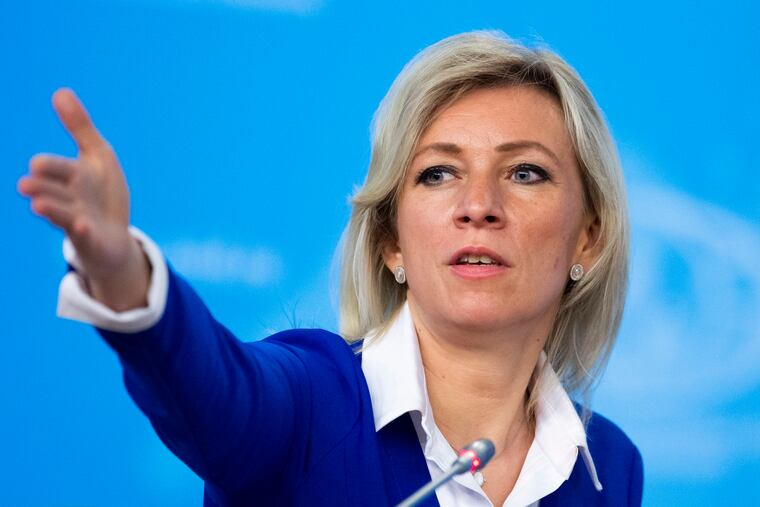Russia calls on New York Times, Financial Times to retract stories about coronavirus toll
Russia’s Foreign Ministry has accused the two publications of spreading “disinformation” after they alleged that Russia’s coronavirus death toll could be much higher than officials reported.

MOSCOW — Russia’s Foreign Ministry has accused the Financial Times and the New York Times of spreading “disinformation” after the two newspapers alleged that Russia’s coronavirus death toll could be much higher than officials are reporting.
The Foreign Ministry’s spokeswoman Maria Zakharova said late Wednesday that letters demanding a retraction would be passed on to the newspapers' editors-in-chief Thursday.
Both articles are based on a spike in total mortality cases reported by Moscow officials. The capital registered around 1,800 deaths more in April this year than the month's average. The Financial Times also pointed to a similar spike in deaths reported by St. Petersburg authorities and concluded that Russia could have 70% more coronavirus deaths than it reports.
Russian health officials insisted that the nation's relatively low coronavirus death toll is explained by a quick ban on travel from China earlier this year, an early introduction of restrictions and tracing of the infected contacts. The scope of testing has been significantly increased in recent weeks, allowing to quickly spot the infections and prevent patients from developing life-threatening complications, officials maintain.
Russia has reported over 250,000 coronavirus cases on Thursday and 2,305 deaths. The comparatively low death toll raised questions in the West, with some suggesting it could be, in fact, much higher.
The Foreign Ministry also reached out to the Organization for Security and Cooperation in Europe, UNESCO and the U.N., saying that the articles the Financial Times and The New York Times ran are “examples of the ‘infodemic,' which U.N. Secretary General (António) Guterres urged to tackle,” Zakharova said Wednesday.
Following the Foreign Ministry's statement, Russian lawmaker Vasily Piskaryov demanded that the accreditation of the reporters from the newspapers be stripped, which would effectively ban them from working in the country. Zakharova said that the measures against the media organizations “will depend on whether they run the retraction.”
The New York Times on Thursday stood by its reporting. The organization's vice president for communications, Danielle Rhoades Ha, told Russian news agencies the report was accurate as it was based on data released by an official state agency.
The Financial Times didn't immediately respond to a request for comment sent by The Associated Press.
Moscow's health department rejected the allegations of undercounting coronavirus deaths on Wednesday. Officials said in a statement that autopsies are being conducted in 100% of suspected coronavirus deaths.
“That's why post-mortem diagnoses in Moscow and causes of death, in the end, are exceedingly accurate, and the mortality data absolutely transparent," the statement said.
More than 60% of deaths of people with coronavirus in Moscow were ascribed to other causes, such as cardiovascular events, terminal cancers, systemic diseases involving organ failures and other incurable fatal diseases, according to the statement.
Guidelines on reporting coronavirus deaths, issued by the World Health Organization in mid-April, state that “deaths due to COVID-19” should be considered as such “unless there is a clear alternative cause of death that cannot be related to COVID disease.”
“The primary goal is to identify all deaths due to COVID-19,” the document says.